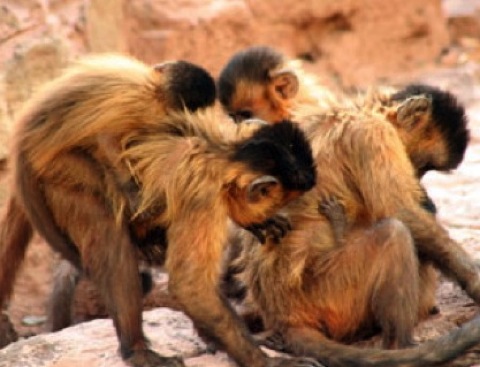Grooming, cofeeding, agonistic alliances: these behaviours in primates can be defined as altruistic, since they benefit the recipient at some costs to the actor. At ISTC the Unit of Cognitive Primatology (UCP) found that the role of altruism in primate evolution is significant in order to explain their social behaviour.
"You scratch my back and I'll scratch yours" is a familiar saying people use when they expect another person to exchange a favour. Our closest cousins, monkeys and apes, take this expression literary. They engage in "grooming," a social interaction in which one individual sits close to another and combs through its hair, removing dead skin or parasites.
In general, animals frequently engage in behaviours that benefit other individuals. Several hypotheses have been proposed to explain the evolution of such apparently altruistic traits, but mostly from a theoretical point of view. At ISTC the Unit of Cognitive Primatology (UCP) is trying to study altruism starting from hard data. Researchers realized the first quantitative test comparing the relative role of kinship and reciprocity in shaping how animals distribute their altruism among group members. They built a database including 25 social groups belonging to 14 different species; kin relations among the subject were taken into account. For each social group, UCP team considered grooming given and received by each member to/from each other group member, and their kinship. Results were quite unexpected: in direct contrast to the prevailing view, reciprocity appeared to play a much larger role than kinship in explaining primate grooming.
This finding underlines the importance of grooming practice: it does not only remove external parasites, but it leads to tolerance, social support, mating advantages and bonding between individuals within a social group. All these characteristics are ruled by altruistic behaviours, which apparently follows a new proverb based on reciprocity: "The most you groom me, the most I'll groom you".
Contact: Elisabetta Visalberghi
ISTC Group: Unit of Cognitive Primatology


